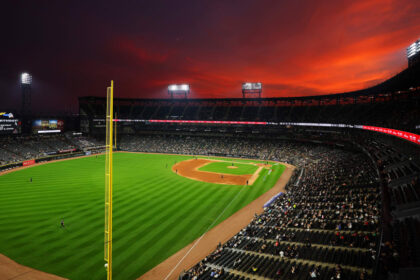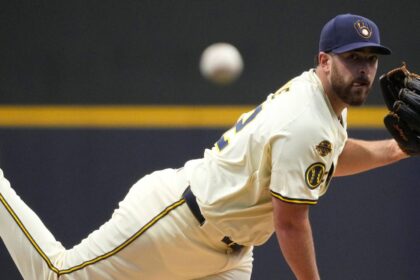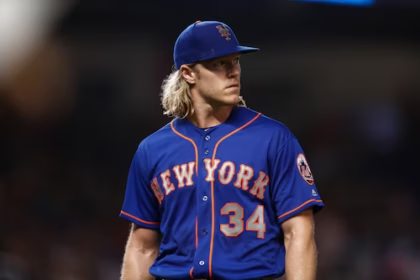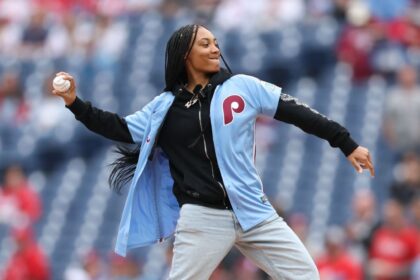The winner of the National League Championship Series could influence whether baseball is played in 2027. Although it may seem incredible, the reality is that the matchup between the Milwaukee Brewers and Los Angeles Dodgers is more than a baseball series; it is a prelude to the labor battle between MLB and the MLB Players Association. The team owners are seeking a salary cap, and if the Dodgers, with their record payroll of over $500 million, win two consecutive World Series, it will further boost the league’s initiative to regulate salaries. On the other hand, if the Brewers, with a consistently low payroll, achieve victory, it will demonstrate that success can be cultivated even in the smallest markets, and that the failures of other low-income teams are due more to execution than to spending. The truth, of course, resides in an intermediate point. But that intermediate point is not where the two sides will establish their negotiating positions in what many expect to be a tough battle to determine the economic future of the game. Therefore, whoever emerges victorious will likely be used as a weapon when formal negotiations begin next spring for the next version of the collective bargaining agreement that expires on December 1, 2026.
If the Dodgers win, the MLB owners, who have already publicly and privately expressed their concern about Los Angeles’ spending, will likely raise their voices even more. MLB is expected to lock out the players once the agreement expires. Consecutive Dodgers championships could embolden MLB and add to a chorus of fans who see a salary cap as the panacea for the plague of big-budget teams monopolizing championships in the last decade.
However, such a scenario wouldn’t scare the union from its half-century anti-salary cap stance. The MLBPA has no intention of negotiating if a salary cap remains on the table. Considering that MLB nearly lost games in 2022 due to a negotiation that didn’t include a cap, the players have already talked amongst themselves about how to weather the loss of time in 2027. Certainly, the Brewers’ victory wouldn’t guarantee avoiding that, but if in any argument about the need for a salary cap, the union can counter that the Dodgers lost to a team with a smaller payroll, it reinforces the idea that team-building prowess can exist regardless of financial power. The Brewers have joined the Tampa Bay Rays and the Cleveland Guardians as frontrunners of low-revenue success this decade. In the last eight years, Milwaukee has won five National League Central Division titles and reached the playoffs seven times. With a 97-65 record this year, the Brewers had the best record in baseball. And they achieved this with a unique combination of players. Of the 26 players on the Brewers’ roster for the National League Championship Series, 15 came via trades, including most of their best players (Christian Yelich, William Contreras, Freddy Peralta, and Trevor Megill). The Brewers drafted four players (Brice Turang, Jacob Misiorowski, Sal Frelick, and Aaron Ashby), signed three as minor league free agents, brought in two through international amateur free agency (their best player, Jackson Chourio, and closer Abner Uribe), and obtained one in the minor league portion of the Rule 5 draft. That leaves one major league free agent. One. And it was left-handed pitcher Jose Quintana, who signed a one-year contract for $4 million in March. Think about it: The MLBPA, which has fought for free agency since its inception, would be praising a team that doesn’t spend on free agents. Strange bedfellows, yes, but it strengthens the union’s position: If the current system is irreparable because of money, how did a team that doesn’t spend win a championship? The Dodgers, on the other hand, are not as reliant on free agents as one might assume. They have also acquired the most players through trades, although it’s only nine, and several of them, from Mookie Betts to Tyler Glasnow and Tommy Edman, play an important role on the team. Los Angeles signed five major league free agents (including Shohei Ohtani, Freddie Freeman, and Blake Snell), as well as two professional international free agents (Yoshinobu Yamamoto and Hyeseong Kim), two amateur international free agents (Roki Sasaki and Andy Pages), and two minor league free agents (Max Muncy and Justin Dean). Dreyer highlights what the Dodgers and Brewers do exceptionally well: extracting talent from players through systems that value a combination of scouting, analysis, and superior coaching. It doesn’t matter if you spend five hundred million dollars or the approximately 115 million dollars that the Brewers currently have. If you can become an organization that gets the best out of players, victory will follow.Perhaps if they weren’t so stationed on opposite ends of the continuum, the league and the union could agree that basing an argument on a playoff series is unwise. Both sides should understand that, in the grand scheme, a seven-game series says very little, particularly when it comes to the complicated economic system of 30 multi-billion dollar corporations competing in the same space.
But this battle is as much about narrative as it is about reality, and if MLB is going to push for a salary cap, it needs as much evidence as possible, and the Dodgers becoming the first team in a quarter-century to win back-to-back World Series would provide another nugget in addition to the piles that the league already cites. The last team to do so was the New York Yankees, and the competitive balance tax, the proto-cap that currently penalizes high-spending teams, came into existence specifically to control what other owners believed was the Yankees’ runaway spending. The Dodgers are the new Yankees, with more money and willing to spend more than anyone. They have won the National League West Division 12 of the last 13 years and have conquered championships in 2020 and 2024. And despite their apparent inevitability, baseball is not suffering in most of the areas important to the league. Television ratings have increased. Attendance has increased. The implementation of the pitch clock before the 2024 season modernized the game and is now almost universally loved. The addition of an automated ball and strike challenge system next year will only add to the game’s appeal. This National League Championship Series is baseball at its finest: a well-oiled machine of superstars, peaking at the right moment, seeking to become the first back-to-back baseball champions since the year 2000, against a team that plays a charming, very likable style of baseball and always seems to succeed, too. The Brewers have yet to win a championship, not only in this recent streak of excellence, but in their 57-year history, and derailing the Dodgers on the way to doing so would make the triumph narrative even greater. And, yes, despite the higher win total, the Brewers enter this series as the underdog, and it’s a fair designation. Even if they swept the Dodgers in the six games they played in July. Even if their bullpen is full of fire-balling nastiness. Even if they’ve hit as many home runs this postseason as Los Angeles, even though the Dodgers hit 78 more during the regular season. There will be a lot of great baseball played in Milwaukee and Los Angeles over the next week, with fans’ cups overflowing with the kinds of matchups that make October the most special month of the year. Ohtani, Betts, and Freeman trying to catch up to Misiorowski’s fastball and read his slider. Chourio, Contreras, and Turang trying to figure out Snell, Yamamoto, Glasnow, and Ohtani. The Brewers’ terrifying bullpen, with five relievers throwing over 97 mph, against the team that hit high-octane fastballs better than anyone else this year. The Dodgers trying to figure out if they can trust any reliever other than Sasaki, and the Brewers, who were the fifth-most difficult team to strike out this season, trying to get to the Los Angeles bullpen with a barrage of balls in play. While baseball itself will be undisputed, this National League Championship Series is bigger than the game. Its tentacles will reach into the future, with an involuntary but undeniable place in something much more transcendent. It’s just a series, yes. But it’s so much more.








